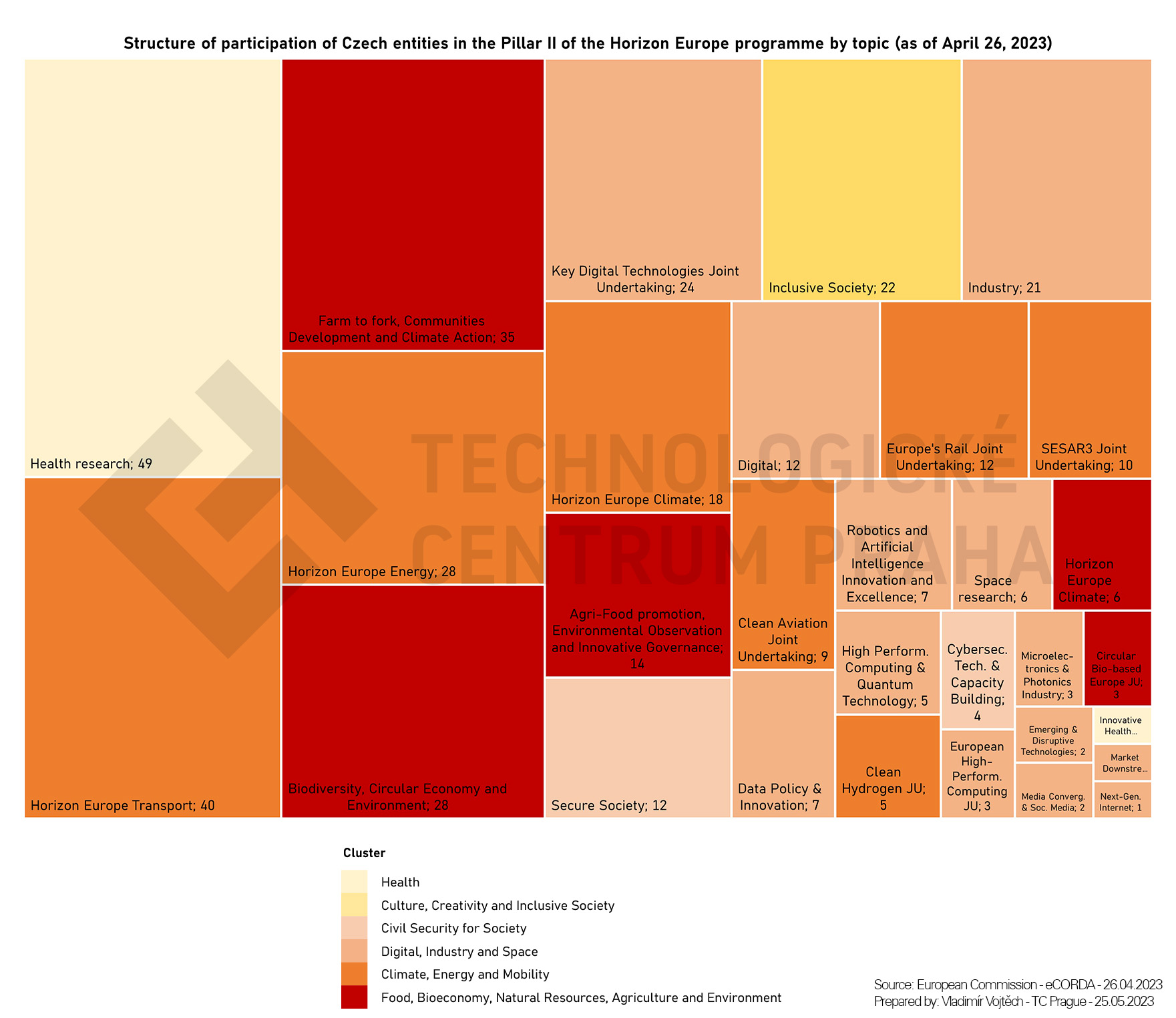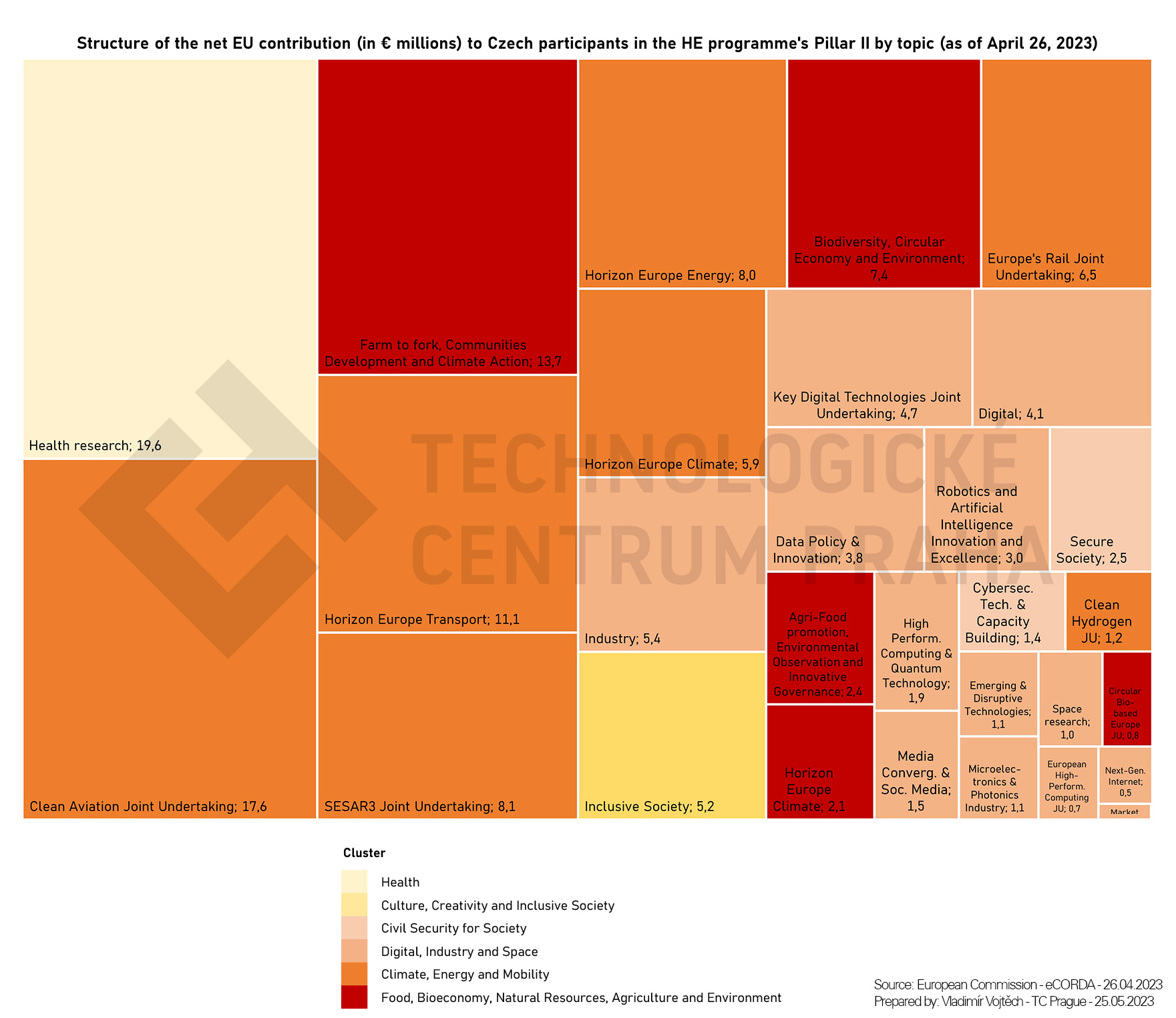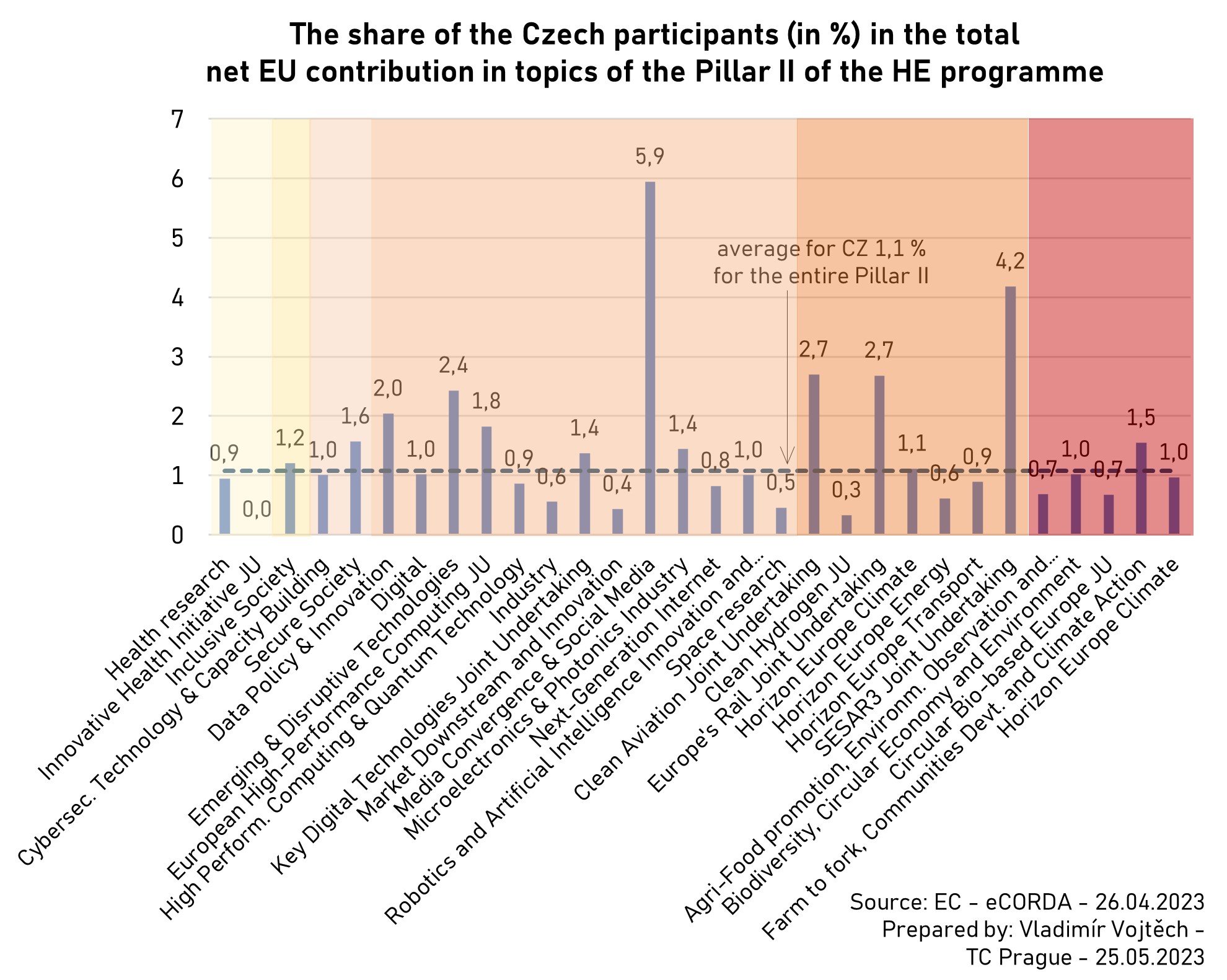ERA call 2025: 21 projects selected to receive EU funding
14/02/2026

The post from May 15, 2023, compared Czech Republic’s participation in the Horizon Europe programme (hereafter referred to as "HE") at the level of pillars and individual parts, or clusters respectively, with the HE programme as a whole. In doing so, the post referred to the report on Austria's participation in the HE programme from February 2023. In this report, published by the Austrian Research Promotion Agency (FFG), the participation of Austrian entities is evaluated up to the level of individual topics in the Pillar II (pp. 9 and 10).
The need for a more detailed view on participation in the individual components of the HE programme was also mentioned in the position papers that responded to the European Commission's public consultation of 1 December 2022 focused on the past, present and future of the EU framework programmes for research and innovation in the period 2014–2027. Wide setting of clusters in the Pillar II were criticized in the position papers (e.g. Cluster 5 including the topics of climate, energy and mobility or cluster 6 including natural resources, agriculture, food production, bioeconomy and the environment).
Inspired, we build on the previous contributions (from May 8 and 15, 2023) and look at the topic structure of the Czech participation in the Pillar II. To create this comparison, the European Commission's eCORDA database was used as of April 26, 2023. The pillar II reported 390 Czech participations and Czech organizations claimed a net EU contribution of €143 million.

Czech entities participated at the most in topics in the field of health research (49 participations, i.e. 13% of all Czech Republic’s participations in the Pillar II), transport (40 participations, i.e. 10%), farm-to-fork, communities development and climate action (35 participations, i.e. 9%), energy (28 participations, i.e. 7%) and biodiversity, circular economy and environment (also 28 participations, i.e. 7%).
Czech subjects in the Pillar II coordinated 21 projects. Aviation Joint Undertakings reported the most coordination (4 in total) – 2 for Clean Aviation and 2 for Single European Sky. 3 coordinations showed the topic farm-to-fork, communities development and climate action. Two coordinations were reported in the topics of health research, data policy and innovation, and climate (within Cluster 5).

The highest net EU contribution was claimed by Czech participants in the health research (€19.6 million, i.e. 14% of the net EU contribution to the Czech Pillar II participants) and in the Clean Aviation Joint Undertaking (€17.6 million, i.e. 12%). More than €10 million was claimed by domestic participants in the topic of farm-to-fork, communities development and climate action (€13.7 million, i.e. 10%) and in the topic of transport (€11.1 million, i.e. 8%).

Within the Pillar II, Czech entities together claimed 1.1% of net EU contribution. At the topic level, the situation is as follows. Czech participants claimed a significantly above-average net EU contribution in these topics:
On the contrary, the topics of clean hydrogen, space research and industry are significantly below average.
Résumé: In terms of topics of the Horizon Europe programme’s Pillar II, Czech organizations most often participated in health research, research in the field of transport (in general, and aviation in particular), food security (farm-to-fork, incl. communities development and climate action), energy, biodiversity, circular economy and the environment. The Czech Republic has an above-average representation in aviation, rail transport and data policy research. On the contrary, it is significantly below average in the topics of industry, space research and clean hydrogen.
Author: Vladimír Vojtěch, TC Prague, vojtech@tc.cz, 26.05.2023
14/02/2026
12/02/2026
11/02/2026